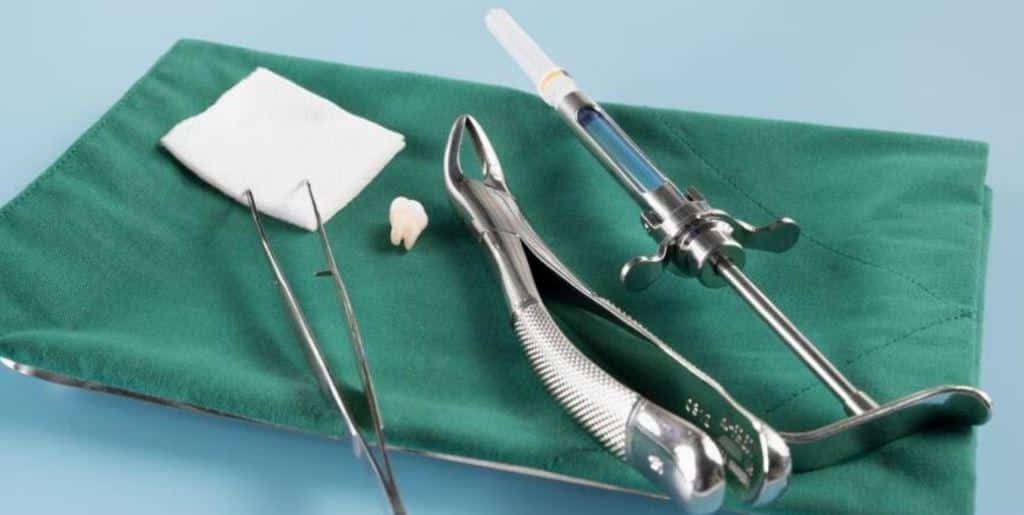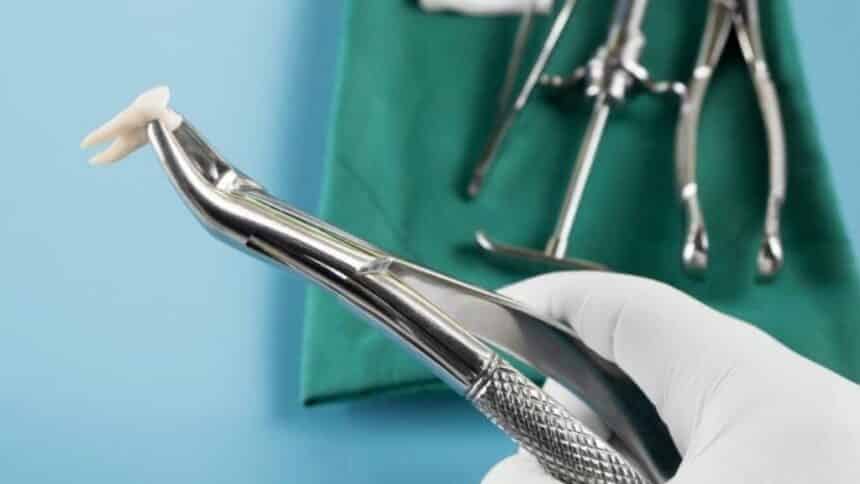The wound healing process after a tooth extraction usually takes between 7 and 10 days. However, the pain and discomfort should pass after 3 days. During this time, you should avoid intense exercise, drinking alcohol, smoking and taking aspirin. What else should you not do after a tooth extraction and how to speed up healing?
When is a tooth extraction a necessity?
Although dentistry is developing rapidly and treatment is recommended in most cases, tooth extraction in the UK may be a necessity. This is the case in cases of root canal obstruction, irreversible pulpitis or advanced decay, among others.
If you would like to learn more about the indications for extraction we recommend our article "Tooth extraction in the UK - when is it necessary and how much does it cost".
The situation is somewhat different for wisdom teeth. Here extraction is a necessity not only in cases of decay, but also orthodontic problems or frequent inflammation of the gums. Improperly erupted eights can cause damage to the roots of other molars or crowding of the remaining teeth, with serious consequences for the entire oral cavity.
We wrote more about this in our article "Surgical removal of eights - when is it necessary and what is the procedure like".
Whatever the reasonWhen a tooth has been extracted, there are a few rules to follow. These will not only help you avoid unpleasant consequences, but also speed up the healing process.

Immediately after tooth extraction
After extracting the tooth, you should bite on the tampon for a minimum of 15-20 minutes (this is to stop the bleeding). After this time, it should be removed from the mouth.
If the wound continues to bleed gently - Don't worry, this is normal. Gentle oozing of blood may continue for a few hours after the tooth has been extracted. However, if excessive bleeding occurs:
- Use a clean tissue or gauze (about 4cm wide) roll it up to a thickness of about 2.5cm.
- Assume a sitting position and clean the blood from your mouth with the corner of a handkerchief to help locate the bleeding site. This is very important.
- Place a roll of gauze opposite the bleeding site. If the extraction site is between teeth, place the gauze between two adjacent teeth.
- Bite a roll of gauze to apply pressure to the bleeding site for 10-15min.
- Avoid a reclining position.
- Replace the gauze if there is still bleeding.
If your efforts fail after an hour, maximum two, contact your dentist. Similarly, if you experience discomfort, swelling within a few days of extraction, or severe pain.

First day
You should refrain from eating and drinking for the first 2 hours after extraction.
After 12 hours, rinse gently mouth with warm water and salt (one teaspoon per cup of water), repeat this after each meal and before bed for the next 7 days. You may feel an uneven surface with your tongue at the extraction site or even bone fragments, but rest assured - this is normal.
During the first 24 hours after a tooth extraction, avoid intense exercise as well as alcohol and smoking.
In case of pain, you can take medication Painkillers, but avoid aspirin. This thins the blood and can make it more difficult for a clot to form. Alternatives to it are medicines based on ibuprofen, paracetamol or, in case of severe pain, ketoprofen. It is best to ask your dentist about these immediately after a tooth extraction and follow his/her recommendations.
Also remember to try not to disturb the extraction site with your tongue, as this can hinder healing.

First week after tooth extraction
The healing process after tooth extraction usually takes between 7 and 10 days. By applying a few principles, you can speed it up and, more importantly, reduce the risk of complications.
Firstly, don't forget proper hygiene throughout the mouth, but don't brush around the wound area.
In the case of swelling, you can make cold compresses for yourself. You should apply the compresses for a maximum of 20 minutes.
Choose foods that do not require excessive chewing and are not too hot or cold. By the same token, after a tooth extraction, a lukewarm soup will be better than a steak.
Also try your best to protect the clot from breaking off. To do this, try to refrain from blowing your nose or sneezing, especially if the extracted tooth was in the upper jaw. Also avoid drinking through a straw, as this creates pressure that can damage the clot.
IMPORTANT! In case of surgical removal eights the healing process may be slightly longer. Nevertheless, your dentist will give you all the information you need on this issue.
And if you have questions or need to remove a tooth - please visit contact.

